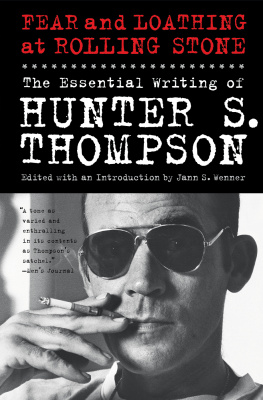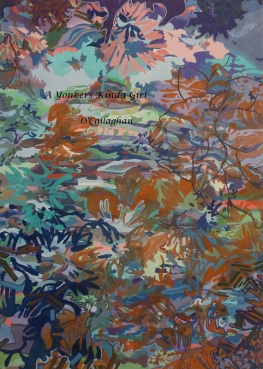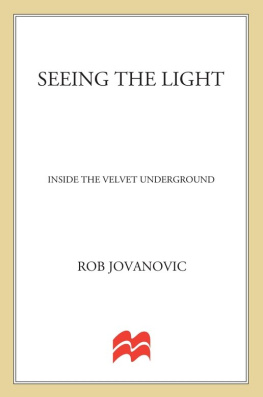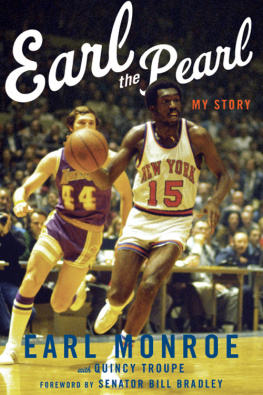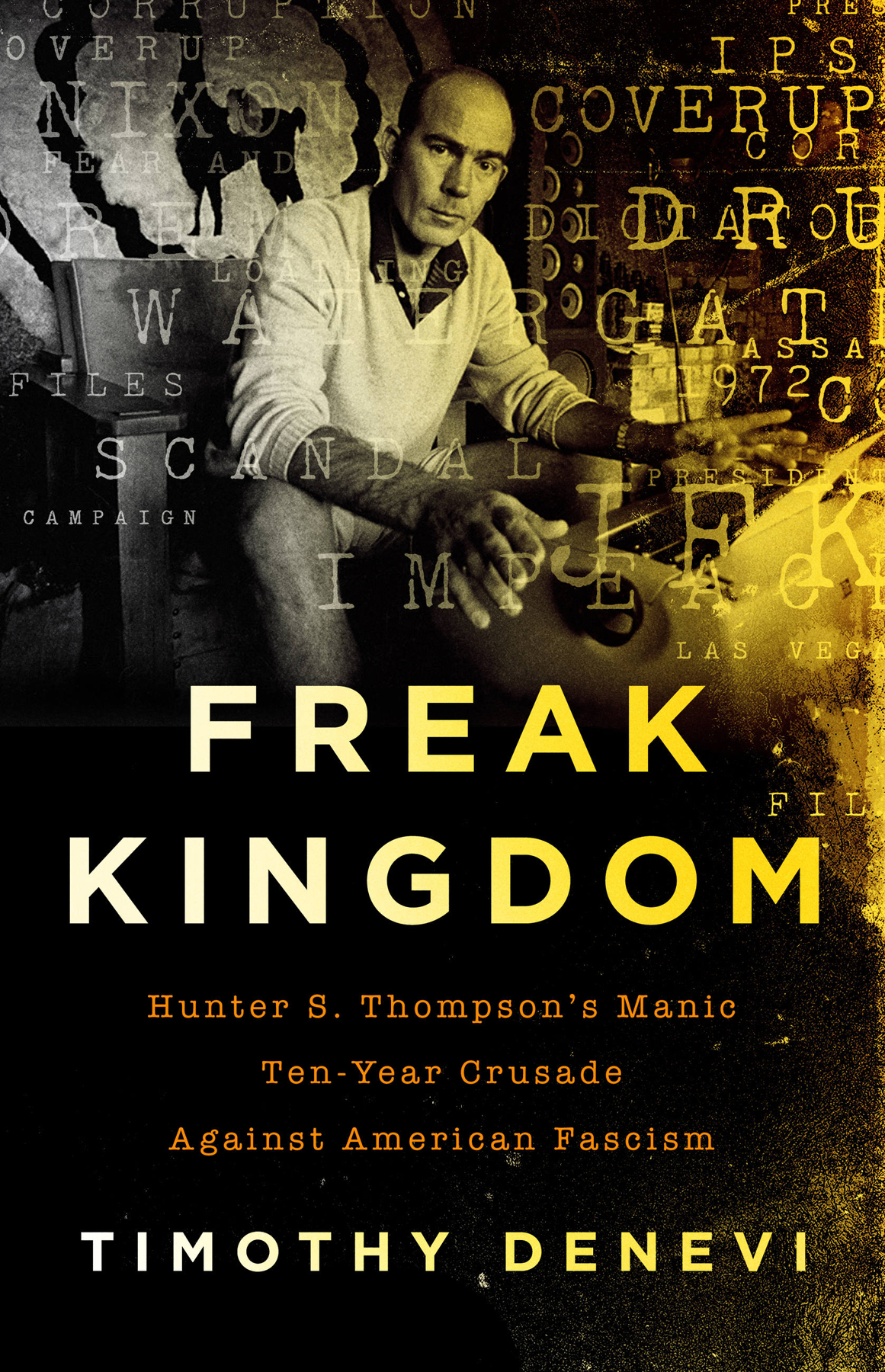Copyright 2018 by Timothy Denevi
Cover design by Pete Garceau
Cover image Michael Ochs Archives / Getty Images
Cover copyright 2018 Hachette Book Group, Inc
Hachette Book Group supports the right to free expression and the value of copyright. The purpose of copyright is to encourage writers and artists to produce the creative works that enrich our culture.
The scanning, uploading, and distribution of this book without permission is a theft of the authors intellectual property. If you would like permission to use material from the book (other than for review purposes), please contact permissions@hbgusa.com. Thank you for your support of the authors rights.
PublicAffairs
Hachette Book Group
1290 Avenue of the Americas, New York, NY 10104
www.publicaffairsbooks.com
@Public_Affairs
First Edition: October 2018
Published by PublicAffairs, an imprint of Perseus Books, LLC, a subsidiary of Hachette Book Group, Inc. The PublicAffairs name and logo is a trademark of the Hachette Book Group.
The publisher is not responsible for websites (or their content) that are not owned by the publisher.
Essays, literary analysis, and political writing that served as an intellectual starting point for this book originally appeared online in the magazines American Short Fiction, Literary Hub, Scoundrel Time, and The Paris Review.
Library of Congress Cataloging-in-Publication Data
Names: Denevi, Timothy, author.
Title: Freak kingdom : Hunter S. Thompsons manic ten-year crusade against American fascism / Timothy Denevi.
Description: New York : PublicAffairs, [2018] | Includes bibliographical references and index.
Identifiers: LCCN 2018015549 (print) | LCCN 2018021767 (ebook) | ISBN 9781541767959 (ebook) | ISBN 9781541767942 (hardcover)
Subjects: LCSH: Thompson, Hunter S. | PresidentsUnited StatesElectionHistory20th century. | Political campaignsUnited StatesHistory20th century. | United StatesPolitics and government19451989. | Nixon, Richard M. (Richard Milhous), 19131994. | PoliticiansUnited States.
Classification: LCC JK524 (ebook) | LCC JK524 .D465 2018 (print) | DDC 070.92 [B]dc23
LC record available at https://lccn.loc.gov/2018015549
ISBNs: 978-1-5417-6794-2 (hardcover), 978-1-5417-6795-9 (ebook)
E3-20180912-JV-NF
For Brett
Im not at all embarrassed at the use of the word freak. I think the way things are going in this country today, its a very honorable designation, and Im proud of it. To be abnormal, to deviate from the style of government that I deplore in America today, is not only wise but necessary.
HUNTER S. THOMPSON, Pitkin County Sheriffs Debate, October 24, 1970
of his experience onto the printed page.
As such, weve arrived at a point in the present where multiple versions of Hunter Thompson appear to coexist simultaneously: versions that in his own writing he both encouraged and also fought back against; that have been amplified in the subsequent biographical works on his life and times; and that remain part of our popular culture, complicating our perspective on who, at different moments in his life, he mightve actually been.
The book youre about to read is, among other things, an attempt to reevaluate Thompsons role as a political writeras a literary journalist in the essayistic tradition whose activism remains underappreciated.
To be sure, it constitutes one version among many: my own, a take thats been composed amid the very specific political climate we currently find ourselves inhabiting. To write this bookin addition to the years of research and interviews that went into its constructionI attended the 2016 political conventions in Cleveland and Philadelphia, and afterward reported on election night, the 2017 inauguration, and various protests in Washington, DC. Im only bringing up this series of events now to acknowledge the specific lens through which Ive arranged everything youre about to read.
Which is to say: in writing about the past Im of course expressing, in some manner, my own concern for the current state of our institutions and idealsfor the Constitution, participatory democracy, and the independent pressthat Hunter Thompson fought so tirelessly to defend.
His perspective on the American republic remains as valuable as ever. In these pages Ive tried to dramatize his political evolution in the manner a novel mightwhile also citing every detail and quote along the waywith the hope of expressing, for you, the effort he put out as a writer and thinker to combat institutional injustice.
In the end his effort came at a dire personal cost. But, during the period of time spanning John F. Kennedys murder to Richard Nixons resignation, it also set the real Hunter Thompson apart from the more outlandish versions weve come to identify with him.
the last best hope of man.
And whether youre already familiar with his fascinating career or happen to be coming to his story for the first time, I hope that youll see in his perspective a timeless and necessary rigorsomething worth considering every day, especially today.
From the Emptiness of the Sky Itself
.
This was on Woody Creek Road, just outside of Aspen, Colorado. He and Sandy had been staying there since the end of the summer, a temporary arrangement; Thompson had recently been offered the position of West Coast correspondent for the National Observer, a weekly general-interest newspaper owned by the Dow Jones Company, and the current plan was to save up enough money for a more permanent move to California. At the time Sandy was six months pregnant.
Thompson went to the door and opened it. Their neighbor, a rancher by the name of Wayne Vagneur, was standing on the porch. Something was up. You could see it in this mans eyes: a pressing, expectant look.
Vagneur got right to the point. Thered been violence, he said. Down in Dallas. John F. Kennedy had been shot. Whats more, he was dead. Murdered.
.
November 22, 1963. That afternoon the information traveled the continent, occupying everything, a lament of incontestable volume. Thompson found out the way most people didpersonally. Only later did you switch on the radio or television for confirmation.
This much was clear: the head of the American government had been cut down by rifle fire in the broad Texas daylight. And the perpetrator, it was beginning to appear, came from the left of the political spectrum: a deranged communist with ties to Cuba and the Soviet Union whod coiled himself on the sixth floor of a nearby building to strike as if from everywhere at oncefrom above, from a snipers distance, from the emptiness of the sky itself, his bullets shattering the famous young leaders body and head.
Really, what had taken place was something more than an assassination; it amounted to both an act of terror and a violent regime change. The country would be under the command of Lyndon Baines Johnson, that ancient, lifelong politico whom Kennedy had sped past on his way to the nomination in 1960, and who would now be asked to stand in memoriam during the upcoming election cycle, with no guarantee of either continuity or victory.


